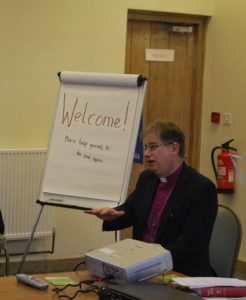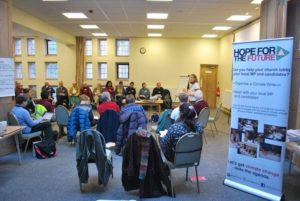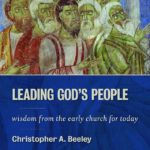 How should a Christian think and speak about climate change?
How should a Christian think and speak about climate change?
Climate change is a present reality not a future threat. It’s a present reality for millions of the poorest people in the world who are affected today by rising sea levels, by changing weather patterns, by water shortages and violent storms.
On Saturday, Hope for the Future offered a training day in Sheffield for Climate Change ambassadors. It was a privilege to be there. Hope for the Future is an ecumenical, nationwide campaign to encourage and equip individuals, churches and groups to lobby their MP on climate change. Further details are here: http://www.hftf.org.uk
2015 is a key year for Climate Change campaigners. Action to prevent climate change has to be global to make a difference. This year, there are a series of key international conferences and meetings. The UK has the potential to play a leading role in all of these, whatever government is in power. Now is the time for the churches to speak out.
The different aid agencies and charities have formed the Climate Coalition (http://www.theclimatecoalition.org). Big things are planned for Valentine’s Day in a couple of weeks time. Pope Francis is to issue a major encyclical later in the year. Christian Aid, Tear Fund, CAFOD and others are all mobilizing their supporters.
But what will move us to take action? One of the most helpful stories to reflect on the Good Samaritan (Luke 10). Almost everyone knows it. A man is travelling down from Jerusalem to Jericho. He is set upon by robbers and left for dead. Over 66% of the people who travel down the Jericho Road that day see the problem but they do nothing about it. They pass by on the other side.
 The Samaritan is different. He sees and is moved with compassion. Compassion moves him to action. That is exactly the journey many of us need to take in respect of climate change. We need to see what is happening and its consequences. We need to be moved with compassion. We need to take action: in campaigning for change, in changing our habits and in encouraging others to do the same.
The Samaritan is different. He sees and is moved with compassion. Compassion moves him to action. That is exactly the journey many of us need to take in respect of climate change. We need to see what is happening and its consequences. We need to be moved with compassion. We need to take action: in campaigning for change, in changing our habits and in encouraging others to do the same.
What helps people to make that change? Jesus tells the parable to answer a lawyer’s question: who is my neighbour?
Think about it. People in the Philippines, in Bangladesh, in Bolivia, in Malawi, affected by climate change today are my neighbours. The generation now being born, who will live through enormous climate trauma if we do nothing are my neighbours. To love them means to take action, to do something.
For ideas on what action to take please go to one of the websites above.
Hope for the Future have partnered with Operation Noah to deliver a second training day in London on March 14th exploring our Christian call to climate action. This will include contributions from Bishop Richard Cheetham, Our Voices and CAFOD. More details on the website.


